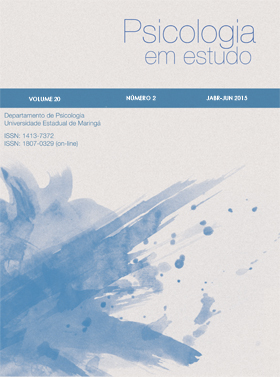ANÁLISIS DE GÉNERO DEL CONTENIDO DE VOCES QUE OTROS NO ESCUCHAN
Resumen
Desde los síntomas hasta la experiencia, el significado de escuchar voces ha cambiado a lo largo de la historia. Sin embargo, incluso hoy, cuando el usuario informa que escucha voces, le diagnostican rápidamente algún trastorno mental y se lo conduce a tratamiento, que, en su mayor parte, consiste en el uso de medicamentos. La subjetividad, el contenido de las voces y sus interfaces con los aspectos socioculturales no suelen ser parte de la asistencia a los oyentes. Por lo tanto, el objetivo era analizar la presencia de valores y estereotipos social y culturalmente establecidos para mujeres y hombres en el contenido de las voces de los usuarios de un Centro de Atención Psicosocial II, leyendo 389 historias clínicas activas. Los resultados demuestran que las declaraciones presentes en los contenidos de las voces fueron influenciadas por los valores y estereotipos sociales y culturales, como la violencia, los roles de hombres y mujeres en la sociedad y la formación del sujeto femenino a partir de la estética del cuerpo. La incorporación del marcador de género en la investigación sobre oyentes de voz promueve un análisis sociohistórico de esta experiencia, superando las limitaciones que la psiquiatría ha impuesto. Además de empoderar a los sujetos, considerando la historia de vida de las personas que escuchan voces y lo que la voz enuncia a través de su contenido, permite la creación de estrategias para el desarrollo de una buena relación con ellos, reflexionando sobre la salud mental y la producción de vida de estos sujetos.
Descargas
Derechos de autor 2020 Psicologia em Estudo

Esta obra está bajo licencia internacional Creative Commons Reconocimiento-NoComercial 4.0.
As opiniões emitidas, são de exclusiva responsabilidade do(s) autor(es). Ao submeterem o manuscrito ao Conselho Editorial de Psicologia em Estudo, o(s) autor(es) assume(m) a responsabilidade de não ter previamente publicado ou submetido o mesmo manuscrito por outro periódico. Em caso de autoria múltipla, o manuscrito deve vir acompanhado de autorização assinada por todos os autores. Artigos aceitos para publicação passam a ser propriedade da revista, podendo ser remixados e reaproveitados conforme prevê a licença Creative Commons CC-BY.
The opinions expressed are the sole responsibility of the author (s). When submitting the manuscript to the Editorial Board of Study Psychology, the author (s) assumes responsibility for not having previously published or submitted the same manuscript by another journal. In case of multiple authorship, the manuscript must be accompanied by an authorization signed by all authors. Articles accepted for publication become the property of the journal, and can be remixed and reused as provided for in theby a license Creative Commons CC-BY.
















